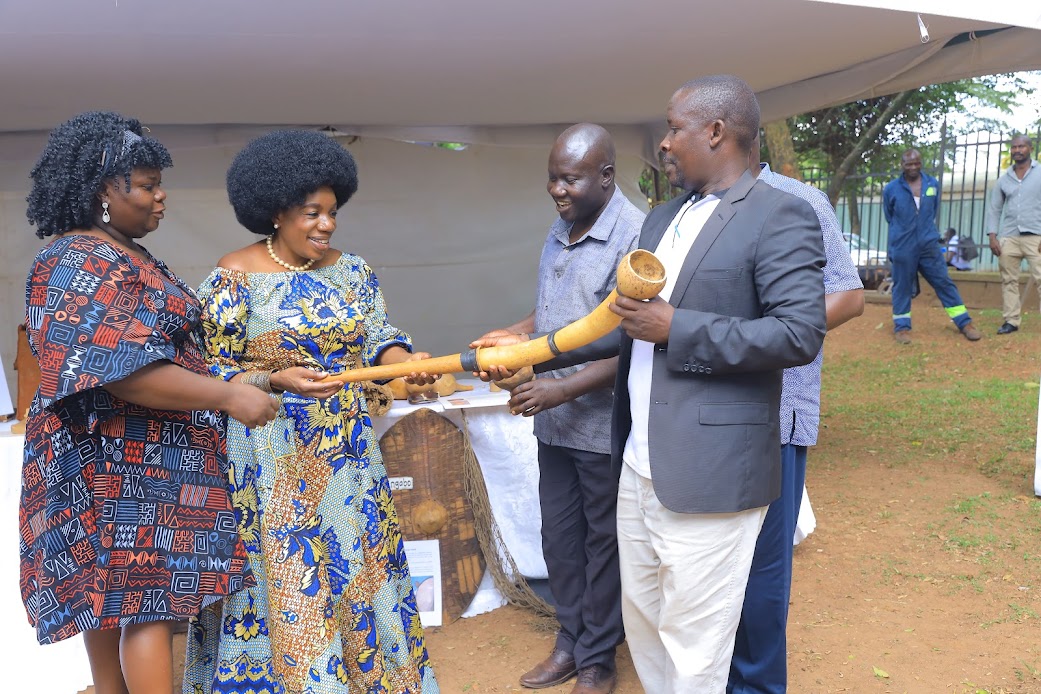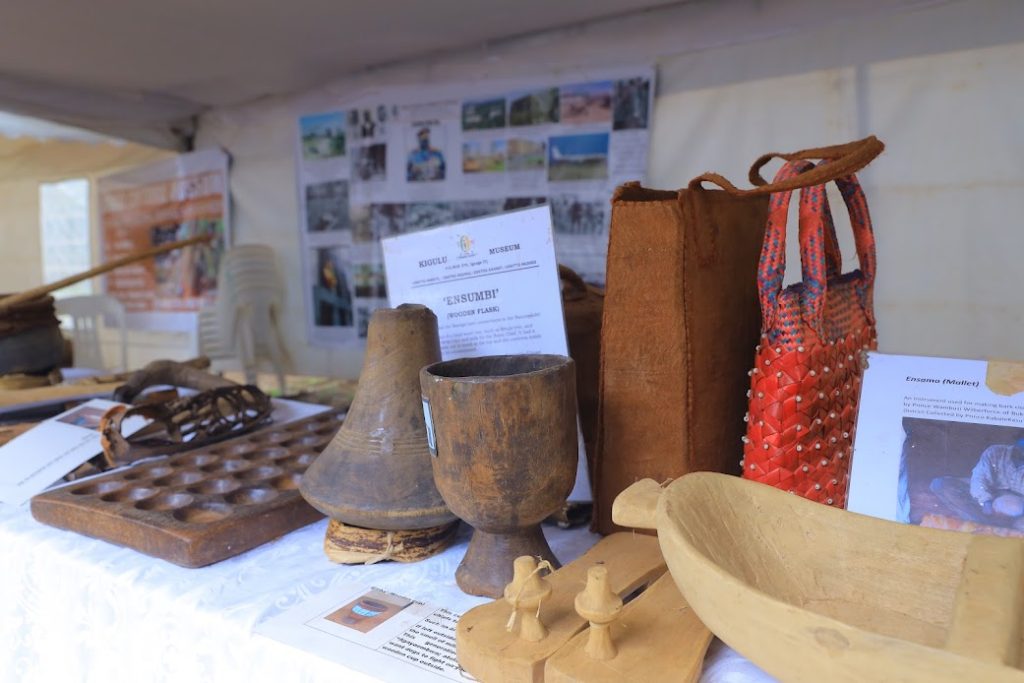Views: 0
Ugandans have been warned that disregarding their own culture will have dire consequences.
“When you forget your culture, you are a shell of who you can be. Until people realise the power of who you are when you know who you are, we still have a lot of work to do. We must know and respect our culture. A lot of challenges we face are because people don’t know their culture,” said Bugweri Woman MP, Racheal Magoola.
She was speaking on Wednesday during an exhibition to commemorate the International Museums’ Day at the Uganda National Cultural Centre (UNCC) in Kampala organized by the Cross Cultural Foundation Uganda.
The theme for this year is “Museums, education and research.”
Magoola insisted that it is wrong to associate culture and heritage with backwardness and being ungodly.
“If you don’t have a culture, you can’t know where you are coming from and at the same time can’t know where you are going. It is high time we held onto our cultures because these define who we are and where we are going.”
“It is appalling that when you go to school, children are not interested in things around them yet this is the culture we are talking of. They think to be in the book from morning to night is the only way to become successful but that is wrong. It is a recipe for disaster and has led to issues like incest since our children don’t know their culture and their relatives.”

The singer who is also the chairperson of the parliamentary forum for creative industries insisted that it is high time Ugandans celebrated their respective cultures but also teach the same to their children.
Museums
Magoola underscored the role of community museums in preserving and promoting diverse culture as centres for research, education and knowledge dissemination; provide an opportunity for community museum managers to network, share experiences and knowledge on cultural heritage.
“Community museums are making an effort to link our past and future through their collections, which are accessible to schools, researchers, residents and foreign visitors. Community museums are also playing an important role in preserving and presenting the diversity of Uganda’s cultural heritage and provide spaces for appreciating different cultures; they are cultural repositories, some with well-documented literature on culture and other socio-anthropological aspects,” Magoola said.
Barbra Babwetera, the Executive Director of Cross Cultural Foundation of Uganda (CCFU), an NGO that champions promotion and preservation of culture said culture is vital for development of the country.
She insisted that despite being diverse in culture, there are many similarities and that their mission is to bring together all stakeholders to use culture to contribute to the country’s development.
She noted that community museums are a good tool for shaping the country’s future, noting that they need to be supported.
“A number of us are not aware that museums are actually centres where you can innovate, research and come up with great things. It is the reason we put a focus on museums to promote learning by putting a link between the past, present and preserving it for the futures,” Babwetera said.

“All innovations don’t occur in a vacuum. They pick on something that is already existing and innovate so as to solve the contemporary challenges that the world is facing. This information can only be got from museums which become a great resource for this.”
Babwetera said it is high time community museums are supported in their endavour to not only preserve culture and heritage but also act as sources of knowledge for research purposes.

She asked government to increase funding to the culture and tourism sectors to support museums as potential cultural tourism resources since they have the potential to employ several Ugandans.
” Our tour operators should include visits to community museums in the packages they develop and offer to tourists . A tourist traveling to Bwindi Forest in Kanungu should be able to visit community museums such as Buddu Cultural Museum in Masaka, Igongo Cultural Centre and Museum in Mbarara, the Great Lakes in Museum in Ntungumo, and so many others,” Babwetera said.
She also urged policymakers, media actors and CSOs to embrace and support our cultures.
“If the policy makers and planners right from the district level up to the national level, do not plan for our culture, then who will? If the media does not write about culture, who will? Our cultural leaders and institutions (as custodians of culture) should play their role in promoting our diverse cultures through community museums. They need to engage young people and use modern technologies to disseminate information about traditional cultural values.”
Babwetera also urged religious institutions to use the pulpit to promote our positive cultural practices that promote our identity, unity and social cohesion rather than condemning culture as satanic, without culture, we have no future!

